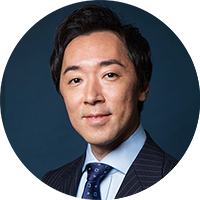Coach's VIEW is a business column authored by executive coaches in COACH A, aimed at providing valuable insights and effective approaches for leveraging coaching to foster organizational and leadership development. The column draws on the latest coaching trends and data, as well as insights from notable global publications on coaching.
No Transformation Without Dialogue

The "Age of Dialogue" is here.
It is so true that we see the word "dialogue" in many situations.
The world where we live is getting more diverse every day, the answers to our questions are getting less clear and more complex, and the future seems more uncertain.
"That is why we need dialogue", "Let's have more opportunities for dialogue" and "Let's make our superiors aware of dialogue instead of conversation. " It is easy for us to think simply like that, however, what is the most important essence for dialogue?
What Intentions shall we Bring to Dialogue?
The other day, the annual conference of the Japan Coaches Association was held, and four guest speakers gave lectures on the theme of "Why Dialogue Now?" All the talks were so thought-provoking that I listened to them with breathless interest.
I was most impressed by the words of Dr. Harlene Anderson, a psychologist and world-renowned leader in the field of dialogue.
"It is important to have the intention to engage in dialogue. Dialogue has the potential to create transformation, and what is important is to have that intention."
I was slightly impacted by these words.
Dialogue can create transformation. How well can we approach dialogue with this intention?
Reinterpreting the "Common"
I studied philosophy and physics at college in the United States. In my first philosophy class, my professor said something like this:
"What do you think is the purpose of your four years of college? For twelve years up to high school, you've been given a constant stream of right answers. In your four years of college, you will question all of these answers. Think about what is valuable to you and what is the answer for you. That is the meaning of studying at college."
The philosophy class started with such a statement, and each class consisted of a 90-minute dialogue between students in response to the professor's questions.
"Your precious lover has become incurable. If you do not take any action quickly, she will die. There is only one doctor in the world who has a medicine that can cure this disease. But that medicine costs 100 million yen, and you do not have the money to pay for it. The doctor is stubborn and says that he will never give you the medicine unless you pay him 100 million yen. There is no room for negotiation. Now, what would you do?"
There is no right answer to this proposition. There is a wide variety of opinions on how to think and what to do from various perspectives and values.
There is nothing more important than life, so in this case it is acceptable to steal.
Can the stealing be justified depending on the reason?
This doctor lacks humanity, he is immoral and should be punished.
Is that really true? Doesn't the doctor have his own reasonable reasons?
One opinion gives rise to a new question, and a new question gives rise to a new perspective and interpretation. We will re-examine what it really means to take for granted things we have been blindly taught; things such as "life is important," "laws should be obeyed," and "economic rules should be respected," .
In doing so, I was able to reinterpret things that I had never suspected to be anything other than obvious. I also experienced that each person is different in what they think is right, why they think it is right, and what they take away as a conclusion.
This is my original experience of how dialogue can change the way we interpret things, the way we see the world and understand people.
I Can not do Much for Myself
Why dialogue now?
I recently completed the second phase of a big project for a major corporate client, and it came up with numerous results. This project was a six-month project in which key mid-level leaders leveraged coaching to engage in dialogue with their subordinates and key people in order to achieve transformation.
After the project was completed, all the coaches gathered to reflect on the project, asking one another, "What did the client's ongoing dialogue ultimately lead to in terms of transformation?" One of the coaches shared this perspective:
"At the beginning of the project, many of the participants and their subordinates felt somewhere in their hearts, that they could not change the company, even though they understood the need for transformation advocated by the management. It seemed that they felt responsibility for this organization, however, they did not have the image or confidence towards how they themselves could lead or do something to transform the company."
"As the dialogue between supervisors and subordinates continued, they began to talk about what they could do, no matter how small. The supervisors repeatedly asked the subordinates what they wanted to try so that the subordinates thought about it together. The supervisors then encouraged the subordinates to take small actions, which led to small successes, learnings, and confidence for both the subordinates and the supervisors. After six months, I feel that the original atmosphere has been eliminated."
The repeated dialogues and the small actions that followed changed one's belief that one could not do much by oneself.
Dialogue that Creates New Interpretations
When you try to transform something, even something small, there is always resistance. This resistance is born from some kind of assumption that has unconsciously become the "status quo " for the person.
There is no meaning in trying.
It will eventually fail.
We will be disadvantaged.
The only people who need to change are other people.
There is a better way..etc.
However, if one person approaches the dialogue with the intention of creating transformation, it may be possible to create a new interpretation of change and an accompanying attitude between the two people.
Dialogue by itself does not necessarily enhance transformation, but no matter how good the strategy is, transformation will not proceed without dialogue with each person on the frontline.
How many leaders in your organization are capable of continuing dialogue to create transformation?
If you have any interest in the DCD program, please click here!
Driving Corporate Dynamism
Transforming Organizations by Creating More Leaders
https://global.coacha.com/process/dcd.html
*Regardless of profit, non-profit or intranet, secondary use such as copying, diversion, selling etc. is prohibited without permission.
Language: Japanese

